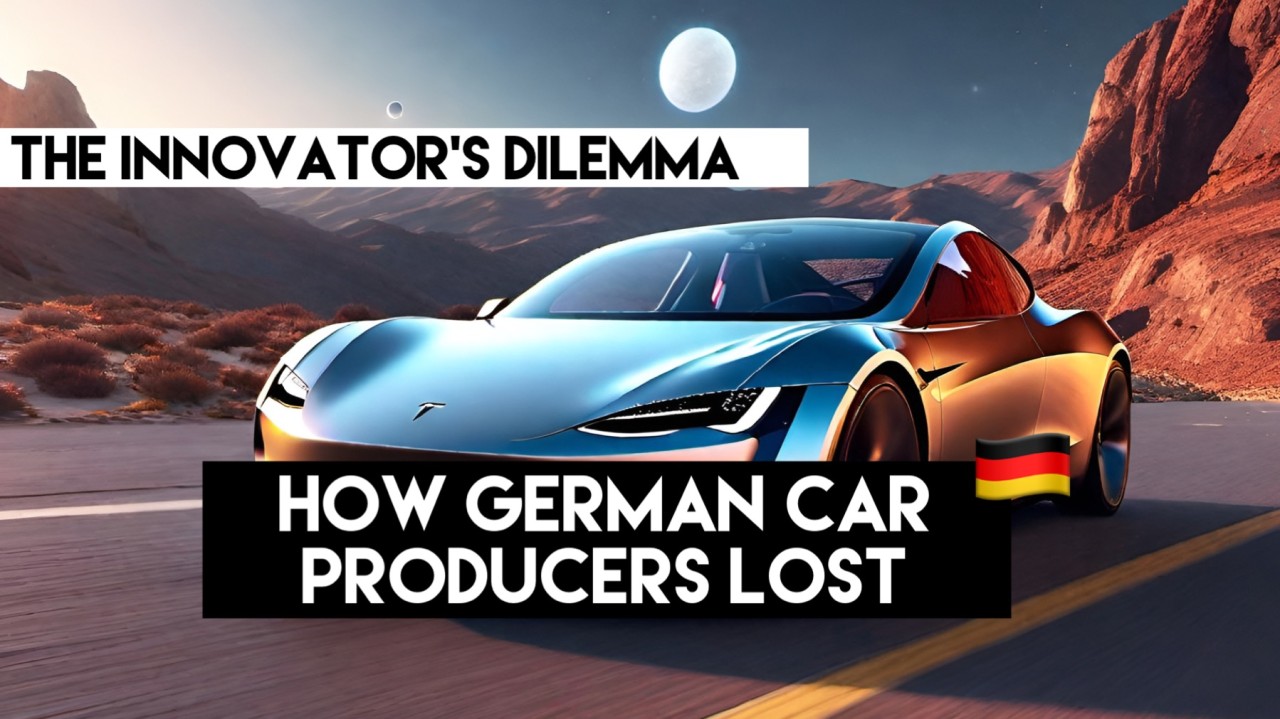Feb06

Historically, German car manufacturers BMW, Volkswagen, and Mercedes—were synonymous with innovation and quality in the automotive sector. However, their hesitancy to fully embrace electric vehicles allowed Tesla, and notably Chinese car makers, to seize the reins of the rapidly growing EV market.
In 2006, Elon Musk outlined his mission for becoming the market leader with electric cars. He started with luxury cars to generate revenue, then introduced high-quality mid-range vehicles and finally brought a vehicle onto the market at a particularly low price that no other could match. Tesla plans to increase production capacity in Berlin to one million cars per year in the future and will soon bring a €25,000 electric vehicle onto the market, which will be a game changer.
While Tesla aggressively pursued electric vehicle technology, German automakers initially hesitated, focusing on their successful lines of internal combustion engine vehicles. This delay, in part, was influenced by concerns about the feasibility of EVs, charging infrastructure, and potential cannibalization of their existing profitable products. But above all it gad to do with taking risks.
I like to quote the CEO of BMW AG, the German luxury car producer, Dr.-Ing. Norbert Reithofer, from an article exactly ten years ago. When asked why BMW started the risky E-car project with the BMWi-3 and i-8 he responded very honest: "Because doing nothing was a bigger risk ..." [Autoweek 41-2013].
As the world witnessed a paradigm shift towards sustainable mobility, Tesla and Chinese EV manufacturers surged ahead, capturing market share and establishing themselves as leaders in the electric vehicle space. Recent data reveals a significant disparity in electric vehicle sales, with Tesla dominating the global market, and Chinese brands making substantial inroads. In Germany, the ramp-up of e-mobility is slowing down - and China is increasingly dominating with brands like NIO, BYD, Geely, XPeng Motors, Li Auto and GWM.
The Chinese are already leading the way as you can see below
Global Electric Vehicle Sales (2022):
(Data source: International Energy Agency, 2022)
Lessons Learned
The German automotive giants' experience serves as a cautionary tale. To navigate 'The Innovator's Dilemma,' you must be proactive in embracing disruptive innovations, even if it means challenging their existing successful paradigms and taking risks. In the rapidly evolving landscape of electric vehicles, early adoption and innovation proved to be decisive factors in building market leadership.
Are you proactive in innovation in the markets which you are leading for a long time …?
Innovative regards,
Gijs van Wulfen
Global Speaker on Innovation, Founder FORTH innovation method, LinkedIn Influencer 300.000+, Author of Management Book of the Year, Milano, Italy
Keywords: Culture, Innovation, Open Innovation
 Lateral Moves: The Most Overlooked Succession Strategy in Companies
Lateral Moves: The Most Overlooked Succession Strategy in Companies The Asset Play: Timing, Structure & Global Arbitrage
The Asset Play: Timing, Structure & Global Arbitrage  The Orchestra Needs a Conductor: Why Multi-Model Agents Require H2E Governance
The Orchestra Needs a Conductor: Why Multi-Model Agents Require H2E Governance The Role of Memory in Modern-day Business
The Role of Memory in Modern-day Business The Architectures of Permanence: A Comparative Analysis of the "Big Three" AI Strategies (2026)
The Architectures of Permanence: A Comparative Analysis of the "Big Three" AI Strategies (2026)